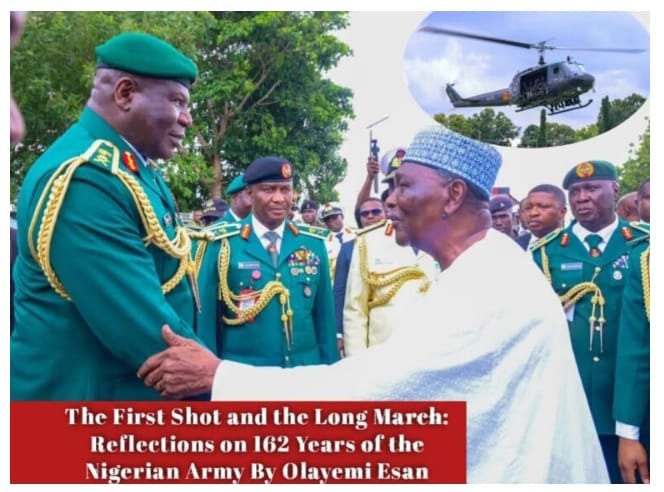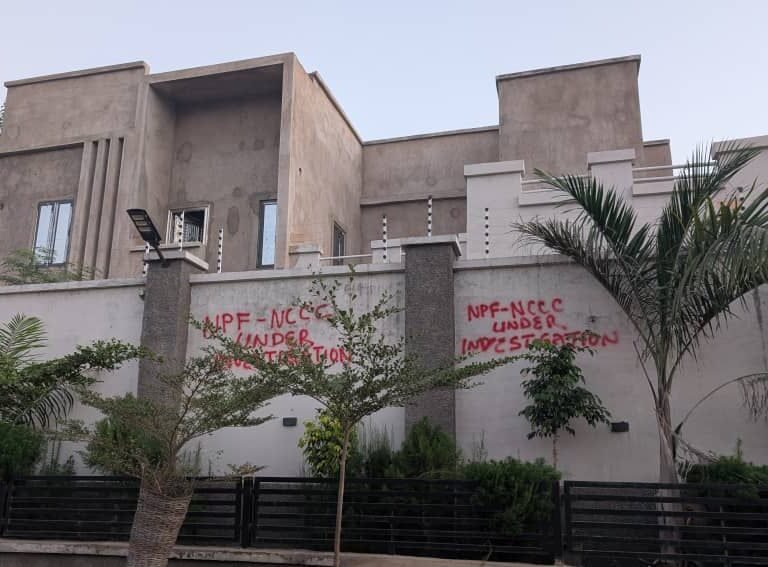
By Ameh Gabriel
July 6, 1967 — a single gunshot echoed through the quiet town of Garkem in present-day Cross River State, marking the beginning of the Nigerian Civil War. It was not just the first shot in a brutal conflict that would claim over a million lives it was a symbol of a nation on the brink, and the burden that would fall on the shoulders of its military.
As the Nigerian Army commemorates 162 years of existence in 2025, it does so as more than a military force. It stands as a living institution shaped by history, tested by war, and forged in the complex fire of national service.
From Colonial Ranks to a National Force
The roots of the Nigerian Army stretch back to 1863, when the British colonial administration formed a small corps of indigenous troops known as the Glover Hausas. Over time, these troops evolved from serving colonial interests to becoming the backbone of Nigeria’s national defence after independence in 1960.
But the road to nationhood was not linear. By the mid-1960s, Nigeria was reeling from political instability, military coups, and deepening ethnic divisions. The 1967 secession of Biafra plunged the country into a 30-month civil war that tested not only the Army’s resolve but the nation’s very foundation.
A War Against Brothers
The civil war was not fought on foreign soil but in villages, towns, and cities across Nigeria. Soldiers many barely out of their teens—were called to fight fellow Nigerians. The war left physical and emotional scars that still echo today, despite the government’s post-war policy of “no victor, no vanquished.”
The Army emerged from that conflict battered but unbroken. It began a slow, deliberate transformation rebuilding not just its capabilities, but its identity in service of a more united Nigeria.
Resilience, Reform, and Relevance
In the decades since, the Nigerian Army has continued to evolve. From fighting insurgencies in the North East, to quelling internal crises, to contributing to regional peacekeeping in Liberia, Sierra Leone, and beyond, it has been at the forefront of both military and humanitarian efforts.
Under the leadership of Lieutenant General Olufemi Oluyede, the Army has made critical strides in modernisation, technological advancement, and civil-military relations, while remaining a bulwark against terrorism, separatism, and criminality. These efforts ensure the Army remains not just a force of arms but a catalyst for national integration and stability.
Honouring Service, Remembering History
The first shot at Garkem remains a profound reminder not only of the dangers of disunity, but of the resilience required to rebuild. As Nigeria faces new challenges from terrorism to economic instability the Army’s role as a unifying force is more vital than ever.
This 162nd anniversary is not just a celebration it is a moment of reflection, a chance to honour the sacrifices of men and women in uniform, past and present. Their stories, often untold, carry lessons of endurance, courage, and commitment to a Nigeria that works for all.
As we look to the future, may we remember that national defense is not just about weapons and strategy. It is about service, sacrifice, and the shared vision of a country worth protecting.
“The first shot was fired in Garkem. Let it be the last we fire against each other. Let the long march be toward peace, unity, and progress.”







